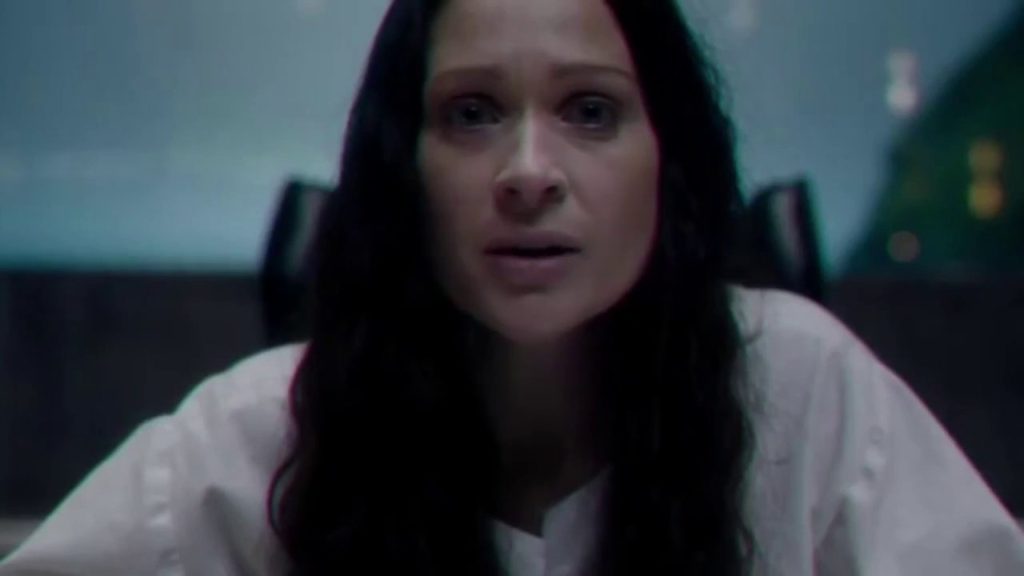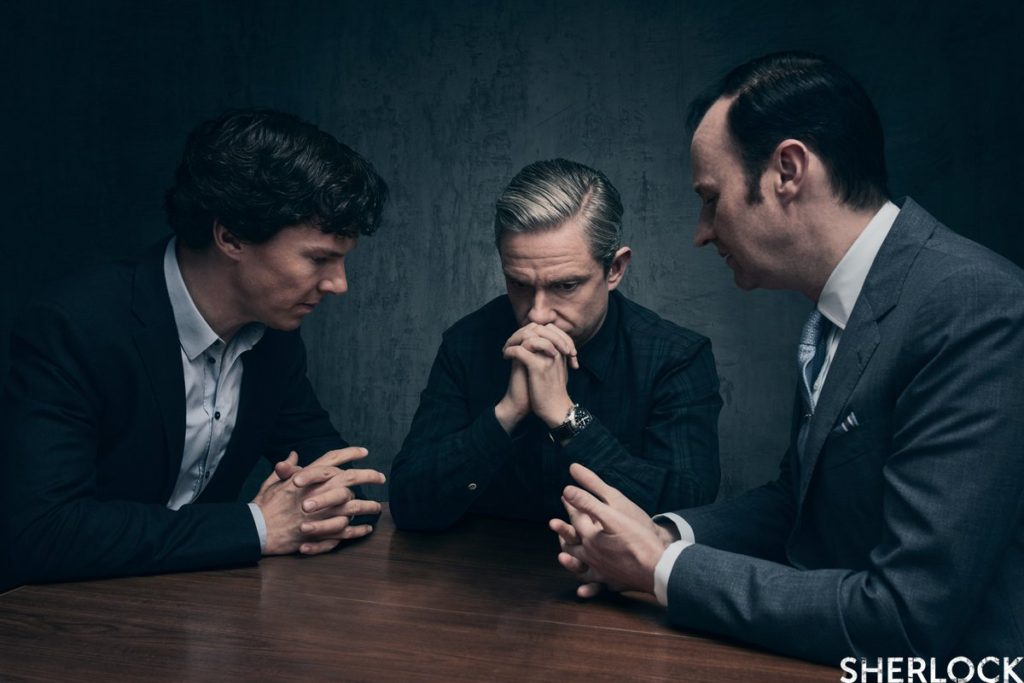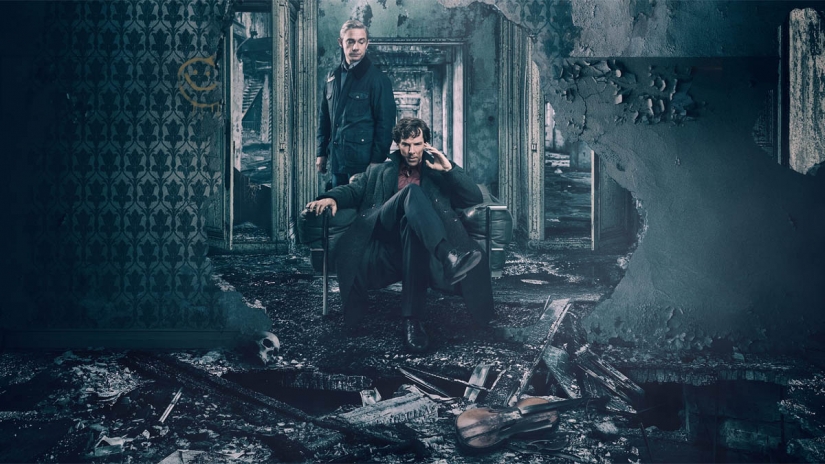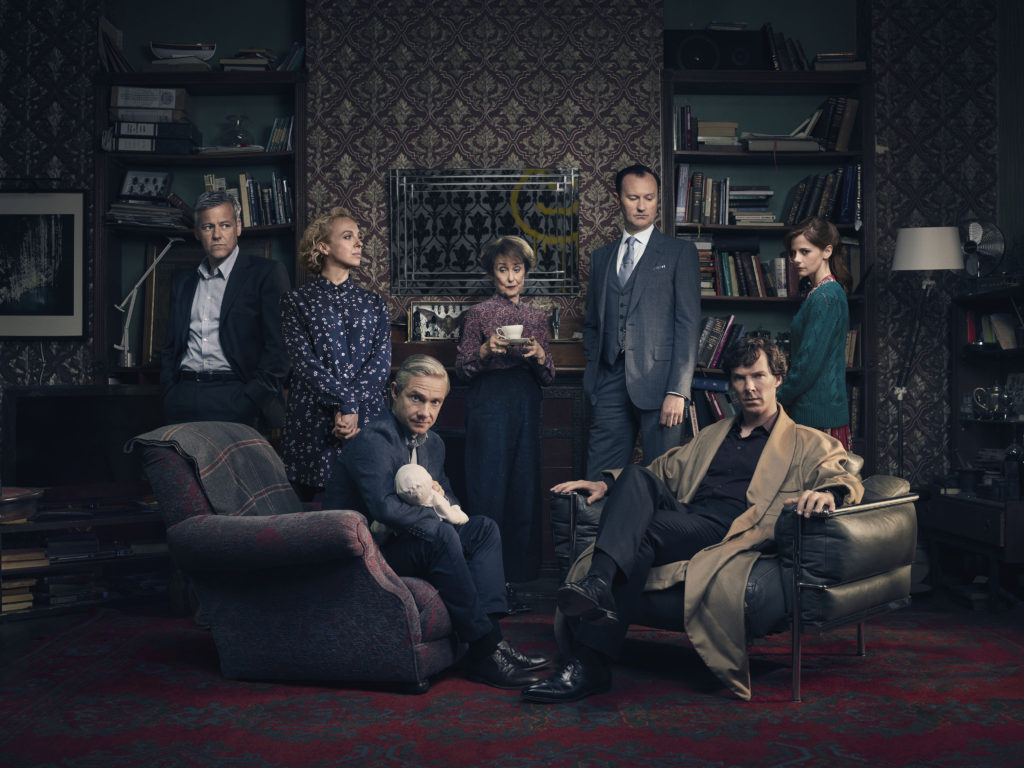We finally get to see the entire Holmes family tree, and now we feel better about our families.
Moriarty was phenomenally bad, but Eurus is brilliant insanity personified.
Cumberbatch and Freeman continue to prove why they are one of the most dynamic duos on television.
The season went the way of Lost and tries too hard to keep us guessing, leaving convoluted writing in its wake.
The finale can't make up its mind, with a dauntingly dark beginning and a sugary sweet ending.
The foray into the mystery of human nature is a bit sloppy and only partially successful.
Sherlock Season 4 tries too hard to keep up with itself but still manages to end on strong note
Since the first day Mark Gatiss and Steven Moffat introduced us to their take on Sir Conan Arthur Doyle’s consulting detective, we have been in love. Filled to the brim with witty banter, stunning deductions, and visuals unlike any other, Sherlock has been an exercise in how to create a (near) perfect show. When interviewed earlier about Season 4, Benedict Cumberbatch stated it would be
“…myopically dark. You’re talking about end of the universe darkness. You can’t see in front of you and walk into everything dark.”
Having seen the episodes, he wasn’t lying. Cumberbatch expertly leads Sherlock to the brink, giving us a glimpse of the detective’s difficult transition into a more emotionally intelligent human being. Martin Freeman plays the part of a quietly fracturing John Watson with finesse. The more stoic he gets, the more our hearts break for him. Of course, it would be remiss not to mention the fantastic supporting cast of Mark Gatiss (Mycroft), Amanda Abbington (Mary), Rupert Graves (Lestrade), Una Stubbs (Mrs. Hudson), Louise Brealey (Molly), Toby Jones (Culverton Smith), and Sian Brooke (Eurus).
Although the show is about the cases, we know what really matters: the bond between Sherlock and Watson. Their partnership, their friendship, and the family they have created is what keeps us watching. This season, we had a front row seat to its almost demise.
 Tragedy is both the destroyer of things and the force for change
Tragedy is both the destroyer of things and the force for change
Having had three seasons worth of uncontested professional success and personal growth (of sorts), Sherlock believes he can do no wrong. He has just escaped a murder charge, been the best man at a wedding, and is now a godfather to his best friend John’s daughter. Mary and John are happily married and new parents, and the death of Moriarty has removed the biggest threat to their lives. At least, that’s what they tell themselves. The truth is, Sherlock’s stagnant, Mary is hiding from her past, and John is secretly unhappy. Despite acting content, they are all waiting for the other shoe to drop – and it does so spectacularly.
With Mary’s unexpected death, we see how fragile everything truly was and why it needed to change. John was bowing under the pressure of being a husband, father, friend, and moral compass. Sherlock had allowed his ego to overrun his judgment and stifle his emotional growth. As for Mycroft, well, he’s Mycroft. Her loss forces them all to reconsider their lives and their priorities, moving them painfully forward to a deeper understanding of themselves and one another. Season 4 highlights a harsh fact we are all familiar with: change is never easy, and sometimes it takes us to the deepest depths of despair before lifting us up into the sunlight.

Families are hard, but they make us who we are
If there was one single theme that ran through this entire season, it’s family. Tackling both the families we’re born into and the ones we create, season 4 reveals the dynamics between members to be as intricate as the deductions that Sherlock makes. John and Mary play perfect partners and parents, but their hidden insecurities do not a happy ending make. The tightknit relationship between John and Sherlock is built on shared experiences and mutual trust, but as soon as they are challenged they fall apart. The three Holmes siblings share exceptional gifts of intelligence and social inadequacies, but the streak of madness that runs through them forms rifts between them all.
As dysfunctional as these families are, they do shape who our heroes become. With Mary’s death and becoming a single father, John steps up to the challenge to be the man she imagined him to be. Sherlock, in his attempt to save John, ends up saving Eurus and himself as well when he finally connects with his emotions. Mycroft comes to realize that he does care for others more than himself, and reveals his vulnerability when he offers to be the one who dies. Even Eurus ultimately reveals that it is her desperation for familial love that drives her madness, and Sherlock’s empathy salvages what little humanity she had left. We get a chance to see that each one’s love for biological and chosen families make them better people in the end.

The greatest mystery is whether character development is as enticing as action and adventure
Sherlock fans have become accustomed to the neatly packaged episodes of the last three seasons, where cases are solved by the end and our intrepid team trotting happily into the sunset. Minus the Moriarty arc, most of the focus has been on the adventures of Sherlock and Watson. Gatiss and Moffat stuck closely to the canon of the books at first, but have slowly begun to pull away into a study of the men behind the legend. Using Mary as an experimental case (for lack of a better term), the two writers tested the water by shifting the focus slightly to their lives versus the cases.
In season 4, they take their biggest risk yet by drawing our eye to the mystery of emotion, and the results are as confusing as their subject. On the one hand, we cheered at the chance to learn more about how Sherlock became Sherlock, discovering the childhood trauma that resulted in his reluctance to engage others and shield himself behind logic. On the other hand, Eurus’s surrender over a simple act of affection after repeatedly berating Sherlock for his emotional context felt contrived and anticlimactic.

Final Verdict: Although not the shining star it once was, Sherlock still exhibits moments of brilliance through its willingness to explore the uncharted territory of human nature.
Sherlock, once known as the show to beat when it came to ratings and critics alike, has met with some recent bumps and hurdles. Nonetheless, it’s good to remember that all shows must evolve, and sometimes that leads to growing pains. To remain faithful to the books would have been the easy route to take, but the predictability of that would render the show unoriginal and stagnant. Gatiss and Moffat wanted to continue to push the boundaries, so they looked for another angle.
They understand that the cases the duo solves are only half the appeal; the rest lies with the men themselves and their unique partnership. We loved the sneak peeks we got of their off-time, with the playfulness and genuine affection they have for one another. We rooted for them to grow both separately and together, and that is why season 4 exists. It might not have been the most exciting season, but it’s an important one.
If this is indeed the end of the show, then I think the writers and the cast finished what they set out to do. They brought the very human, very real Sherlock and Watson to life and took us on a journey through their lives. Cumberbatch and Freeman will always remain one of our favorite pairings, and their performances will be talked about for years to come. Gatiss and Moffat have raised the bar for writing, and the production team will always be remembered for their visual representations of Sherlock’s genius and catchy theme song.
No matter the flaws, Sherlock remains one of the smartest and most groundbreaking shows on television. What the future holds, we don’t know, but we certainly hope we will see Sherlock and Watson together again.

Questions and Comments:
- As much as we enjoyed the cute little ending monologue in “The Final Problem” it just makes us want to see more of Sherlock’s good ole fashioned mind palace deductions.
- We would kill (not literally of course…then again…) to see more of Eurus. Yes, she’s evil and everything, but the idea of seeing Sherlock bested by his kid sister is too appealing not to wish for. Besides, we can all agree that Sian Brooke was sublime!
- Along that line, can we get a Big Brother-esque reality show episode of just the Holmes siblings?
- If we did get another season of Sherlock, which direction would you like it to take? Go back to the way it was, or continue with new material?
- What was your favorite scene of Season 4? What about your favorite episode of the series?
Season Four Verdict: ‘Sherlock’ [BBC]
Jennifer Yen















![Season One Verdict: “The Resident” [Fox] The Resident](https://tvafterdark.com/wp-content/uploads/2018/05/The-Resident-Season-One-Review-TW-204x142.png)
![The Flash Review: [4×17] “Null and Annoyed”](https://tvafterdark.com/wp-content/uploads/2018/04/fla417b_0223b-204x142.jpg)

![Altered Carbon Season 1: Final Verdict [Netflix] Altered Carbon](https://tvafterdark.com/wp-content/uploads/2018/03/Altered_Carbon_Season_1_Final_Verdict_Featured-204x142.jpg)



![Victoria Season 2: Final Verdict [PBS] Victoria](https://tvafterdark.com/wp-content/uploads/2018/01/Victoria-S2-E1-IMG-8-204x142.jpg)
![The Flash Review: [4×14] “Subject 9”](https://tvafterdark.com/wp-content/uploads/2018/02/fla414a_0284b-204x142.jpg)























